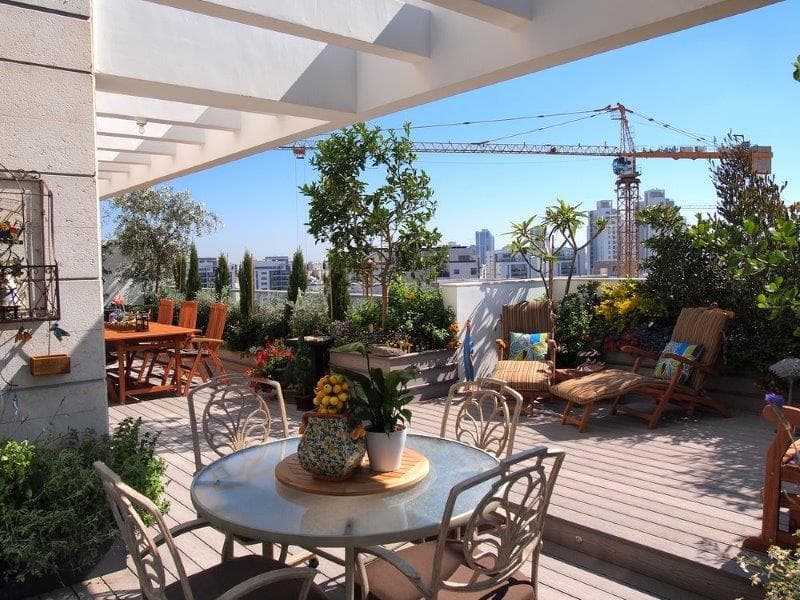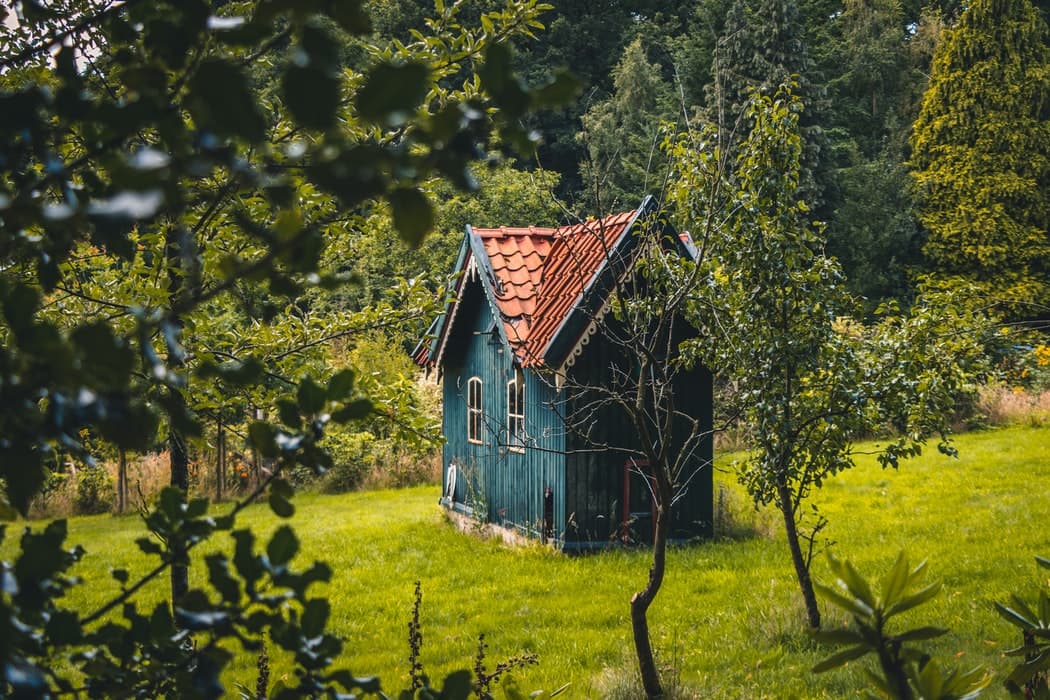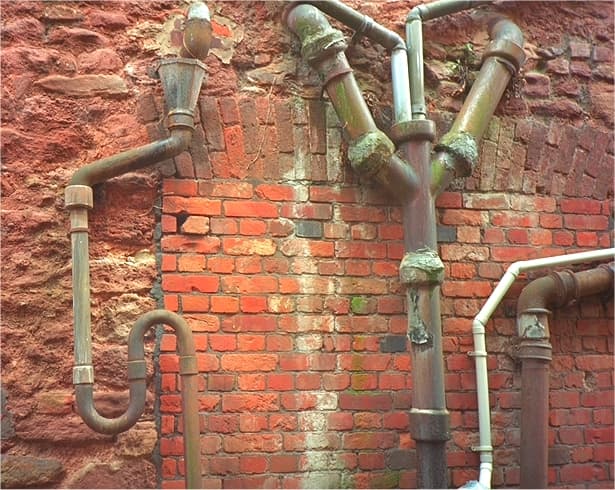
Have you always wanted to have a peaceful area outside and simultaneously benefit from your rooftop space? Wondering what are the rules, how to proceed, and how much it'll cost? RenoQuotes.com will point you in the right direction to help you make this project a reality!
Building a Rooftop Terrace: Questions to Ask Yourself

Source: Canva
First off, ask yourself, is your home or building structurally sound and capable of withstanding this new construction load? When calculating, consider the weight of the materials, patio furniture, people, plants or garden, etc.
Next, do you really have to budget to go forth for this type of project? If your roof requires extensive work to change the slope or alter the draining system or reinforce the frame, and its load-bearing capacity, you’ll need to hire an engineer and spend a considerable amount of money to make the required changes, and all of this has to be done prior to you even thinking about building a rooftop terrace. From there, you can start thinking about material costs (wood, aluminum, gravel, membranes, plant-based substrate, etc.).
Lastly, are you even allowed to build a terrace there? Can building atop a structure negatively affect your neighbour’s privacy or obstruct their view? Maybe the municipality requires the whole of the neighbouring to look a certain way. Or, construction codes forbid you to go forth, and so on.
What kind of permits do you need to transform a rooftop into a terrace?

Source: Canva
Before you start the construction process, you’ll have to get a transformation permit. This will involve doing plenty of research or asking local authorities about the type of permit you need as well as the steps necessary to receive the proper authorizations for your project. To get approval for your rooftop terrace, you will have to respect certain conditions and guidelines so that you’re building legally rather than illegally.
First things first, the rooftop terrace or garden you're planning on building can't be more than 2 metres high.
Furthermore, the features that will need to be added (barriers, benches, etc.) must be at least twice as far away from the edge of the structure as they are high. However, no margin is required if the building’s parapet can be used as the terrace’s guardrail.
Lastly, any flammable items on your terrace must respect a 1.2-metre clearance between your property and neighbouring ones.
Required Documents and Permit Costs
In Montréal, when you apply for a transformation permit, you’ll need a file with detailed rooftop terrace plans that have been drawn up by a professional. These plans need to include information about access to the roof as well as a specific description of the terrace’s location. Permit requests can be initiated by yourself or a qualified contractor.
However, we recommend proceeding with caution and hiring architects, construction, and structural experts since converting a flat roof into a rooftop terrace requires certain know-how that only professionals can bring to the table.
As for the cost of such a permit, note that it’ll cost you a percentage of the total costs of the entire project, meaning $9.80 for every $1,000 of work, starting at $140.
Waterproofing a Rooftop Terrace: Your Number One Challenge

You’ll have to make sure your roofing is heavy-duty and waterproof. Here are a few factors to consider to meet this crucial benchmark.
First of all, a vapour barrier will shield your new construction against humidity. As for thermal insulation material, it’ll ensure that your terrace is just as insulated against the cold as it is from the heat. The latter can be made of various materials: mineral wood, cork, perlite, etc.
The flexible waterproofing screed serves as an intermediate layer to separate chemical elements that are incompatible. Ultimately, it's no more and no less than a waterproof layer that keeps your decking safe from adverse weather conditions.
The Different Rooftop Terraces

Source: Canva
The initial investment made when planning on building a rooftop terrace is quite considerable, however, generally speaking, homeowners can make it back when reselling the house. According to contractors, to build a rooftop terrace, you need to spend between $18,000 and $36,000.
If you choose to convert your rooftop into a terrace, note that there are a lot of options out there! As such, you can ponder over the three most popular styles of rooftop terraces listed below.
Balcony-like terrace with wood decking or other material
This is the cheapest option on the market. Once the structural modifications have been made to your home or building, you’ll have to install the decking along with a drainage system.
White membrane or white gravel
This type of project is more expensive because it requires making quite a few changes to the building. If your roof isn't already fitted with a white membrane, you'll have to remove the current roofing and replace it.
Green roof with a flat roof membrane
This type of rooftop terrace is understandably more expensive. Most often, you’ll need to lay a new, flat roof membrane as well as different draining layers and a plant-based substrate.
Nonetheless, this green space will be your little slice of heaven to entertain friends and family. Moreover, you’ll be actively contributing to an eco-responsible initiative to curtail urban heat islands, improve air quality and lower energy bills.
Why not take advantage of your new rooftop space to grow delicious fruit and veggies, especially if you don’t have a backyard, which is often the case for many city folks?
If you want to learn more about rooftop renovations, check these two articles:
Get 3 renovation quotes for your rooftop terrace project
RenoQuotes.com can help you get quotes for your rooftop terrace project. If you submit your project, we’ll put you in contact with 3 qualified professionals. Fill in the form on our homepage (it only takes a few minutes) and receive quotes from the best renovation companies.
Dial 1-844 828-1588 to speak with one of our customer service representatives.
Looking for something else?
Related articles
The latest industry news, interviews, technologies, and resources.

Amanda Harvey
•08 Nov 2023
Painting the outside of a house can be a long and gruelling process, but if completed correctly, the transformation can be dramatic! When high-quality exterior paint is applied to a properly treated surface, it’ll last much longer than expected. As well, it will protect the outside of your home from sun, wind, rain and snow. Although the price of paint will often indicate quality, there are several other factors that will help you to determine which paint is right for the exterior of your home.

Editorial Team
•09 Jul 2025
Dreaming of moments of relaxation and swimming? Installing a fibreglass pool means choosing thermal comfort, minimal maintenance, and exceptional durability.

Editorial Team
•08 Nov 2023
Are you dreaming of living in a tiny house, but have a few reservations due to the constraints of designing such a limited interior space? Although you really need to use your imagination when living in a house when a modest layout, you can still make it just as practical as it is cozy! Here are a few examples you’ll surely like!

Editorial Team
•21 Aug 2024
It's impossible for a human being to detect asbestos or lead in plain sight, as neither can be seen or smelt by the human alone. However, both are incredibly dangerous for the health when ingested, and actions must be taken immediately if there is any suspicion of either material.

Editorial Team
•04 Nov 2025
Architectural concrete is more than just a building material—it’s a design choice that blends strength, durability, and visual appeal. Across Quebec and the rest of Canada, it’s being used in homes, commercial spaces, and even public art installations. Unlike regular concrete, which is chosen purely for structural purposes, architectural concrete is valued for its aesthetic qualities: colour, finish, and texture.